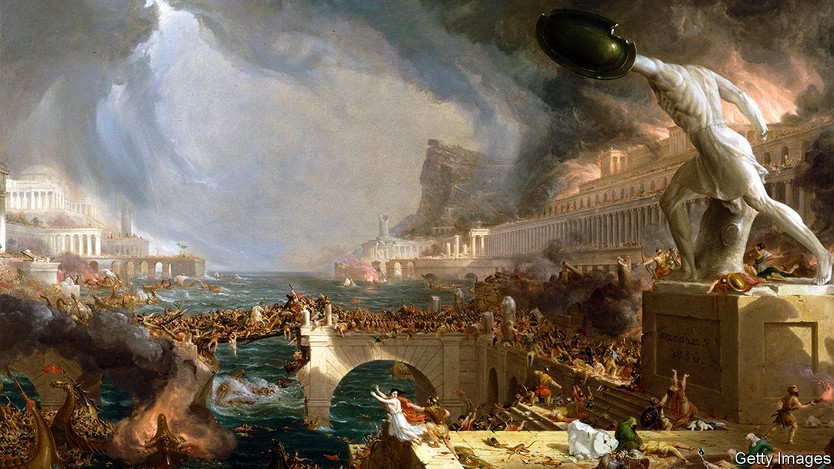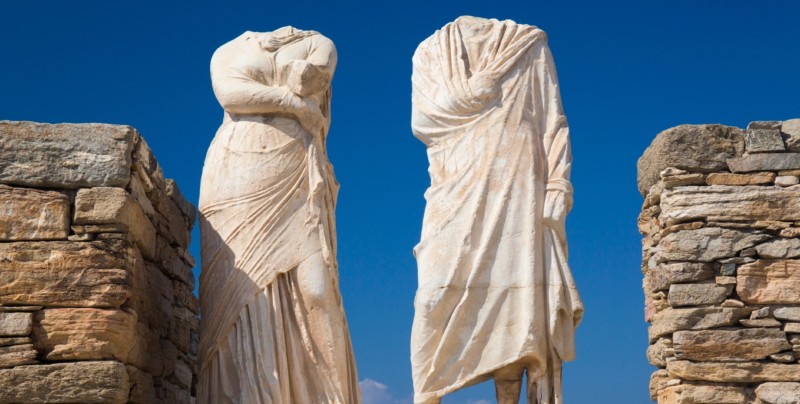
We need liberal values of freedom and markets more than ever, says Joe Lonsdale, an entrepreneur and investor
(This article first appeared in the economist.)
In recent decades, the idea of “Western civilisation” has found few fans on American campuses. In a haze of ethnic studies programmes and Stanford’s chants of “Hey, hey, ho, ho, ‘Western Civ’ has got to go!”, many people have lost sight of the principles that make “the West” exceptional.
Like all civilisations, the West’s evolution included terrible violence, such as the subjugation of the native populations in North America and the slave trade. Its history was often ugly and racist, from the idea of “the white man’s burden” that was used to justify colonialism to the pseudoscience of eugenics. These noxious episodes lead critics to claim that Western principles are vacuous: a mask for unrepentant imperialism or merely the philosophy of a simpler age.

But that is plain wrong. In fact, the core ideas of the West hold many of the answers that we seek today in response to a populism which rages on the left and on the right. Instead of being the source of society’s ills, the values of Western civilisation are part of the cure. They are needed now more than ever.
Instead of being the source of society’s ills, the values of Western civilisation are a part of the cure
For most of history, the average worker earned $1-3 a day – even at the peak of Roman prosperity. Only a select few had rights to accumulate and hold property, and all faced the threat of violent expropriation. Fear and bondage reigned until the 17th and 18th century enlightenment thinkers aligned around natural rights to one’s person and property. In a passage that captures the soul of the modern West, John Locke wrote:
The State of Nature has a Law of Nature to govern it, which obliges everyone: And Reason, which is that Law, teaches all Mankind, who will but consult it, that being all equal and independent, no one ought to harm another in his Life, Health, Liberty, or Possessions. (“Second Treatise on Government”, 1689.)
Locke’s moral insight is “liberalism”, a principle of mutual restraint inspired by the inviolable rights of others to design their own lives. Freedom is life in accordance with reason; reason compels us to respect the freedoms of others. By respecting the rights of others, we guarantee our own.
This Enlightenment thinking was put into practice in the Glorious Revolution in 1688 in Britain, and especially in the founding of America, where Locke’s liberalism formed the backbone of the new republic. To be sure, in practice there were deep contradictions—the founders were simultaneously freedom fighters and slave-owners—but the institutional architecture was in place. The West’s new framework of property rights and political freedoms unleashed a surge of creative energy, enabling a three-century miracle of growth, prosperity and unimaginable wonders of innovation.
It didn’t have to happen that way. The natural order of things is for life to be “solitary, poor, nasty, brutish and short” (in the words of Thomas Hobbes, a contemporary of Locke). Western civilisation is a great artifice: a liberal framework that enshrines property rights, allowing us to restrain most forms of tribalism, participate in free markets and prosper by serving others regardless of their identities.
These political rights of treating people equally and letting them get on with their business had a hugely beneficial effect on society and the economy. Consider that historically speaking, it is actually unnatural for the best ideas to dominate and spread, thus allowing entrepreneurs to displace incumbent, vested interests. More common is for force or hierarchy, not the meritocracy of ideas, to win. However, the West established a cultural and legal environment where a competition of clever ideas and activities could flourish.
The Western edifice of science and knowledge bolstered and fed off the upward spiral of prosperity, enabling our civilisation to fund healthcare, education, infrastructure and other trappings of modernity. Yet today Western civilisation faces a crisis of confidence, a hollowing out of the liberal order. Our society’s failure to adhere to liberal tenets of open markets and a contest of ideas imposes painful costs on the economy and on working-class Americans. The illiberal economy, particularly in America, has given rise to a host of ills:
“The West’s new framework of property rights and political freedoms unleashed a surge of creative energy”
* Restrictive zoning ordinances make the cost of living in high-growth cities prohibitive. This hurts millions of people and shuts tens of millions of others out of the most dynamic areas of our country.
*The healthcare system is like a cartel that limits new medical schools, doctors, and innovative forms of competition. Cronyism, ludicrous tort law, local monopolies by hospitals, and a dense mesh of rules and restrictions create a “cost disease” that wastes $1 trillion a year.
* The prison system, fueled in part by a misguided “war on drugs,” incarcerates millions of people—disproportionately minorities—with horrific recidivism rates, ruining lives and communities.
* Education, a national experiment in centralised control and funding, is unequal, mediocre and leaves students unprepared for a complex economy.
* A maze of over a million federal regulatory commands, with thousands of new “guidance documents” released every year, and a comparably vast net of state-level regulation, make entrepreneurship expensive and difficult. This regulatory sand-trap favours the wealthy and powerful (who can afford armies of lawyers) over small businesses.
Though global prosperity has risen in recent decades, incomes in the West for all but the wealthiest have stagnated. This is in part due to global competition, but also because of failures of market liberalism at home. As in the feudal system before liberalism, the strong prey upon the weak. The areas where our society is failing people are those where policy does not enable bottom-up, market-driven innovation. Put simply: The West is failing precisely where its core liberal values do not hold sway.
In healthcare, education, the affordability of cities, immigration and regulation, the Western, best-ideas-win system of innovation is stymied. Unaccountable bureaucrats rule vast areas of society and the economy at the behest of vested interests, an arbitrary elite who run major businesses and investment funds. These failing areas are reminiscent of pre-liberal society, when parts of the economy were divvied up by royal privileges.
“Society’s failure to adhere to liberal tenets of open markets and a contest of ideas extracts a painful toll on the economy”
The tragedy of our generation is that our dynamic innovation economy and the most pressing needs of our society are ships passing in the night. The West must enable entrepreneurs to solve our biggest problems by testing ideas in competing innovation zones, such as delivering cheap, high-quality healthcare, preparing students for the workforce, building housing and reducing recidivism.
The question is not how the elite should run the school, hospital, or prison—that’s top-down thinking. Instead, the question is how to create the conditions for bottom-up, market incentives to enable our best-and-brightest to innovate and compete.
We must create policy and incentive frameworks so that a young genius, woman or man, who is not connected to power but happens to have the best idea, can build a team, raise capital and get to work. Only in this way can a bright person out-compete failing institutions.
That’s what competitive markets deliver. But our system is increasingly rigged and extractive; it must be free and open.
As pre-Enlightenment modes of value-signaling, tribalism and power-politics come to the fore on campus and social media, we must reaffirm our commitment to Western liberal values by actually putting them into practice. Only a rational order which enshrines individual rights to person and property, and expands opportunities for all, will create the stability and economic progress necessary to quell populist discontent.
“The tragedy of our generation is that our dynamic innovation economy and the most pressing needs of our society are ships passing in the night”
Unsurprisingly the anti-liberal, top-down parts of our society are experiencing cost-disease and decay. The West enabled a market order where the best ideas win, no matter whose idea it was. We need to remind ourselves of how unusual the miracle of our political economy is and enact its lessons. Only then can we save the concept of “Western civilisation” and spread its benefits of freedom and prosperity—not just for people in the West, but for everyone.
Joe Lonsdale is an American entrepreneur and technology investor. He co-founded Palantir, Addepar, OpenGov and other companies, and is a partner at 8VC, his venture capital fund. He is also a founder of the Cicero Institute, to help policymakers and entrepreneurs work together on society’s challenges.

